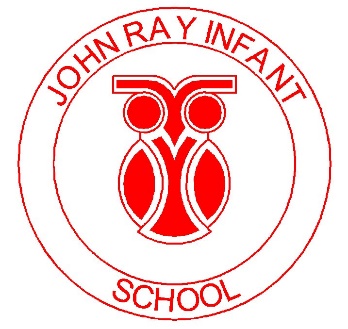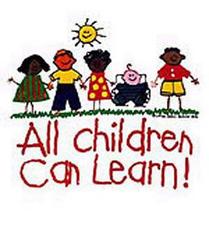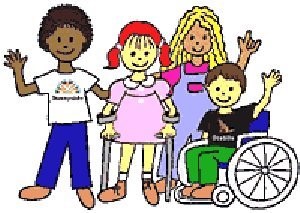SEN Area

JOHN RAY INFANTS and NURSERY
Learning together, aiming high proud, to be ourselves
SPECIAL EDUCATIONAL NEEDS INFORMATION REPORT
SENCO : Mrs Lauren Bailey-Whyte (01376 323071)
senco@johnrayinfants.essex.sch.uk
Governor responsible for SEN : Mrs Penny Smith
Vision Statement:
Our school is a welcoming community, where everyone feels happy, safe and valued. We aspire to be the best that we can be and believe that learning should be fun, purposeful and challenging. We promote a creative, stimulating curriculum that focus' on skills for lifelong learning.
Through our Code of Conduct and Core Values we set ourselves high expectations, develop responsibility and a deep respect for others.
We believe in creating a positive and inclusive learning environment where everyone is provided with the skills, knowledge and attitude for a successful future.
“Teachers are responsible and accountable for the progress and development of the pupils in their class, including where pupils access support from Learning Support Assistants or Specialist Staff”( Code of Practice – 6.36)
At our school everybody is somebody.
At our school everybody has a voice and feels like they belong.
At our school EVERY CHILD MATTERS
What kind of Special Educational Needs [SEN] are provided for?
- A pupil has SEN where their learning difficulty or disability calls for special educational provision, that is provision different from or additional to that normally available to pupils of the same age.
- Special educational needs and provision can be considered as falling under four broad areas:
- Communication and interaction
- Cognition and learning
- Social, mental and emotional health
- Sensory and / or physical

Admissions:
- We welcome all children to our school and endeavour to ensure that appropriate provision is made to cater for their needs.
- All pupils with SEN play a full part in the daily life of the school and are encouraged to participate in all activities. If additional provision is necessary the parents/carers are always informed.
- Pupils with EHC plans are admitted and fully integrated unless it would be incompatible with the efficient education of other children.
- Pupils starting Foundation Stage in September have a visit to the home by relevant school staff before they start.
- Attendance for all children is part time initially (mornings for a week and then afternoons for a week). Part-time attendance could be longer if deemed necessary by school staff and agreed in consultation with parents. The Foundation Stage Leader and SENCo liaise with the pre-schools the term prior to admission. The needs of pupils with SEN are discussed at this stage and plans made for necessary provision.
- For pupils transferring from another school, if the school is informed of any pupil with SEN prior to entry, the SENCo and Headteacher ensure that facilities and support are in place ready for when the pupil arrives. To help provide the right environment, further information is obtained from appropriate outside agencies, the pupil’s parents and the previous school.
Who is responsible for the Special Educational Needs provision in school?
All staff are responsible for the education of children with SEND
Specific roles within this include
- The Senco is Mrs Lauren Bailey-Whyte
- The governor responsible for SEN is Mrs Penny Smith

- The Designated Safeguarding Lead is Mrs Lisa Christian
- The Speech and Language LSA is Mrs Erika Pearson
- The Pastoral LSA is Mrs Nikki Lee
Our Core Offer
Wave 1
Most children
Most children will have their needs met with provision that is available to all children.
This starts with teaching of the highest standards that adheres to the school’s core values and learning behaviours.
Well planned lessons that ensure progress for all children according to prior attainment, which in turn includes the following-
PITCH – all lessons will be well planned and allow all groups of children to access the curriculum and be suitably challenged. A variety of approaches and activities will be used to meet all individual needs based on prior attainment.
BEHAVIOUR – all lessons will be routed in our core values and learning behaviours. Underpinning all teaching will be strong relationships between staff and children. They will have equally high expectations for all, based in mutual respect.
EXPERT – All teachers are highly qualified with excellent subject knowledge which will be reflected in the planning. All lessons will teach and reinforce key skills in reading, writing, literacy and numeracy.
BUZZ – learning will be both engaging and enjoyable. Lessons will be designed to promote high levels of engagement and active learning. Children will be encouraged to be independent learners as well as to work collaboratively.
ASSESSMENT for LEARNING – assessment is key. Teachers will use effective questioning to clarify understanding, address misconceptions and judge progress. Clear verbal feedback will be given as an active part of the lesson and written feedback will be in line with the marking code and the children will respond to this.
PROGRESS – All children will make progress in every lesson every day. This will be achieved through well pitched, engaging activities, a positive and productive learning environment and children who have time to reflect on their learning.
These are just a few of the ways in which we may support children in the classroom.
|
pre-teaching |
thinking aloud |
software and apps |
|
chunk learning/instructions |
private signals |
extra time |
|
multi-sensory/practical teaching |
writing frames |
mixed attainment groups |
|
Different levels of questioning |
templates |
cued listening |
|
peer mentoring (children supporting each other) |
cloze procedure (filling in missing words) |
peer praise (children praising each other) |
|
highlighters |
visual timetables |
simple language |
|
key vocabulary accessible |
word mats |
sound mats |
|
working walls/displays |
MODELLING |
practical apparatus |
|
alternative methods of recording |
daily reading |
Study buddies |
|
Special aids eg pencil grip |
checking understanding |
take up time |
|
Learning support assistant support |
scaffolding |
Check in zone |
|
hover support |
oral rehearsal |
link learning |
|
mind maps (pictures of learning) |
recording buttons/boards |
Visual supports and cues |
|
rewards |
clear learning objective |
plenaries (bringing learning together) |
|
success criteria (what are we learning to do) |
targeted questioning |
verbalising learning |
WAVE 2 intervention and support
SOME children (to achieve age related expectations so that the children are working at a level that is expected for children of their age)
|
Some concerns/monitoring (not on the SEN register) Identified children are monitored. The aim of wave 2 is to accelerate progress and close the gap so that children who have stopped making good levels of progress begin to do so with some provision in and out of the classroom. Interventions are time bound, tailored and meet the needs that have been assessed. Parents will be informed of concerns, targets will be put on Termly learning review forms and progress will be tracked through interventions and pupil progress meetings. Children who are still stuck, making little or no progress will be referred to the SENCO via a referral form.
|
|
Cognition and learning Intervention groups eg guided writing, daily reading Lego writing groups Precision teaching Fine motor skills Gross motor skills Nessy
|
|
Communication and interaction Speech and language support (Speech and language support LSA and Speech therapists) Nuffield Early Language Intervention Listening groups/Lego therapy Social skills groups
|
|
Social, Emotional and Mental Health Social skills intervention Behaviour interventions, charts Colour monster work Emotion coaching Self-esteem groups Learning mentors Feelings mentors
|
|
Physical and sensory Fine motor skills Gross motor skills Carpet seating Adapted resources Environmental adaptations. |
WAVE 3 interventions and support
A FEW children (targeted and personalised support)
|
A few children who may have identified SEN. The aim of wave 3 is to accelerate progress and close the gap. This may involve outside agencies. Assess (the level at which the child is currently working), plan (put in place targets and interventions), do (carry out these interventions), review (look at the progress made but the child) One plan If there is still little or no progress then an Education Health Care Needs Assessment will be requested from Statutory Assessment .
|
|
Cognition and learning Specialist teacher involvement Educational Psychologist involvement Specialist and individual programmes 1:1/small group support
|
|
Communication and interaction Specialist teacher involvement Educational Psychologist involvement Specialist and individual programmes Speech and language involvement 1:1/small group support
|
|
Social, Emotional and Mental Health Play therapists 5 step plans Specialist teacher involvement Educational Psychologist involvement EWMHS Attention Autism Work stations 1:1/small group support
|
|
Physical and sensory Occupational therapist Physiotherapist Individual adjustments made Specialist teacher involvement 1:1/small group support
|
How do we identify and assess pupils with SEND?
We use Essex Local Authorities graduated response of Assess, Plan, Do, Review
It is our policy that the class teacher will identify children with a SEN through a variety of methods, such as observations or assessments undertaken in the course of good quality teaching. Any concerns will be discussed and any changes to provision or interventions put in place. Progress will then be reviewed as a result of these interventions and an analysis of what is working well/not working well will then inform another cycle of intervention.
Where children do not make expected progress a Cause for Concern referral will be completed and returned to the SENCo. At this stage the advice of outside agencies may be sought and taken into consideration.
The Essex provision Guidance Toolkit is used at each stage to select appropriate provision.
Children are added to the SEN register when they meet the criteria for the Essex National Curriculum Threshold or Determining Levels of Need descriptors set out in the guidance
One Plans will be written which are reviewed regularly as part of the cycle.
Requesting an Education Health Care Needs Assessment will be made where, despite the school having undertaken relevant and purposeful action to identify, assess and meet the SEN of the child the child has not made expected progress. The decision is discussed with the parent and specialist advice sought.
How do we consult parents of children with SEN?
How do we consult with the children themselves?
Through our open door policy we have very positive relationships with parents and we are able to consult with parents regularly at Termly Learning Reviews and through the One Planning process. We are also prepared to meet with parents at any time to discuss their concerns. The children are consulted through informal chats, observations and play as to their feelings about their lives and learning. Their views are included in the One Planning process.
How do we support children in transition between different phases of their education?
- Pre-school to Foundation Stage.
- Home/School Worker
- Nursery visits
- School Readiness Project
- Network meetings
- Team around the child [TAC] meetings
- Welcome meetings
- School tours
- Transition visits/programme
- Photo books
- Liaison with pre-school SENCo
- Foundation to Key Stage 1
- Transition programme
- Welcome meetings to set out expectations
- Welcome packs for Parents/Carers
- Transition leaflet for children
- Move round days
- Key Stage 1 teachers t visit Foundation children
- Key Stage 1 – Key Stage 2
- As above plus:
- Transition programme
- Transition visits
- Transition Booklets
- SEN Tea and Chats
- Liaison with SENCO
- Moving between schools
- Liaison between the SENCos
- Paperwork to be forwarded as soon as possible
- Meeting with the parent and child
- Visit to school
How adaptations are made for children with Physical Special Educational Needs?
- Changes and adaptions to the physical environment
- Easy access t the school building for wheel chairs
- Disabled parking
- Toilets adapted for disabled users
- Double doors in some parts of the building
- Wide corridors
- Individual classroom/school adaptation for individual needs eg adapted steps and seating for a child with prosthetic hand
- Lift
- Our curriculum is also adapted as necessary as for any other child, according to our waves of intervention.
Please see the following documents:
- Disability Policy
- Accessibility plan
- Equality Policy
What expertise and training do staff have?
How is specialist help secured?
All staff have received training relating to SEN and are regularly updated and bespoke training is put in place to meet very specific individual needs. Referrals are made to the following services for advice, support and training. The SENCo attends relevant updates and training. We also work closely with other schools to share expertise.
- Educational psychologist
- Speech and language therapist
- Occupational therapist
- Physiotherapist’s
- EWMHS
- Home / school liaison worker
- Play Therapist
- School Nurse
- Health Visitors
- Family Support to include:
- Family in Focus
- Family Solutions
- Health visitors
- School nurse
- APEX parent support group
- Play And Resource Centre [PARC]
- Parent partnership
- ADHD Chelmsford Group
- Please see the Local Authority Offer for details
- Home School Liaison worker
How is the effectiveness of the provision given to children and young people with Special Educational Needs evaluated?
- Target Tracker [TT]
- One Page Profiles
- One Plans target success
- Speech and language target success analysis
- Early Learning Goals/National Curriculum levels / end of key stage statements
- Intervention reviews
- Tracking Meetings
- Annual Reviews
- Person Centred Reviews
- Parent Views
- Child’s views
- Teacher reports
- Ofsted
- Annual school reports
We are currently developing the use of the assessment and intervention pyramid with the support of the Specialist teachers and Educational psychologist.
- If appropriate progress has been made, children may be removed from the SEN register.
How are children and young people with Special Educational Needs included in the life of the school?
We are committed to the inclusion of all children. All activities are made accessible to all children and if necessary the extra support/adaptations are put in place.
All children benefit from a calm and ordered school with clear and consistently high expectations. We explicitly teach children social skills in order to allow for successful playtimes and social interactions.
What support is there for improving emotional and social development?
There is a commitment to pastoral support and emotional well-being across the school.
- Circle Time
- Pastoral LSA
- Parent groups
- Nurture groups
- Traffic light behaviour system
- Sensory Room
- Play Therapist (invite only)
- Forest school
- Gym trail
- Pupil surveys
- Enrichment days
- School council/Class Council
- Christian Youth Organisation [CYO]
- Personal, Social, Health Education [PSHE]
- E-safety
- Anti - Bullying policy
- Breakfast Club- Early Birds (invite only)
What arrangements are in place for handling complaints from parents of children with SEN about the provision made at school?
- Please refer to the school’s complaints policy
Summary:
- All of the information here applies to children with special educational needs, including those who are looked after by the local authority.
- This information should be read alongside the information provided by the local authority.
Local Authority Local Offer.
Our school SEND provision makes up part of the
Essex Local Offer which can be accessed via the Essex County Council Website:
Things you need to know
Information for Families who have a Child/ren with Special Educational Needs
EYFS – KS5
The Bridge is published monthly for families with a child with SEND and has information from across Education, Health and Social Care. Please find the Bridge Family newsletter via the link - Send Family Bridge Bulletin May Edition

SEND Events
